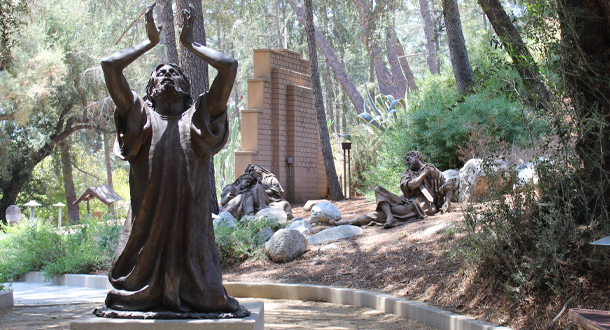
Scripture:
Exodus 12:1-8, 11-14
1 Corinthians 11:23-26
John 13:1-15
Reflection:
Passionist priest, Father Joe Mitchell, CP, says the most crucial act of redemption did not occur on Good Friday. The moment of redemption occurred in the Garden of Gethsemani the night before Good Friday when, in excruciating mental and physical agony, Jesus pleaded with his Father to let him escape the torture of the next 20 hours.
The brilliant French philosopher, Jean-Luc Marion, who has taught at the University of Chicago as well as the Sorbonne in Paris, says, “. . . Jesus is the one who says I will never do my will. When I speak it is not my words. Which is very strange for us because to be sincere, we assume, is to speak your own words, your thoughts. Jesus, however, says you can trust me because I never say what I think, but only what the Father thinks. But what is really extraordinary is that Jesus is able to do the will of someone other than himself. That is the most difficult thing we can ever do.”
That night at Gethsemani, tucked away from the handful of his sleepy disciples in a quiet corner of the garden, Jesus faces a life or death decision, alone before his Father. Until this moment the Gospels tell us Jesus carried out his Father’s will in service to others by healing, consoling, preaching, challenging the sinful ways of men in positions of power, and witnessing to others the ideal way we can live. He took on the evils of his day, including greed, dominance, violence, lies, ambition, and all other forms of selfishness, and he showed no signs of fear of reputation, status, or violence to himself. . . until the night of the Passover, his last Passover on earth.
By his acceptance of what the Father wanted of him that night he modeled what is expected of each of us, his disciples. We distinguish ourselves from all other people by our decision to surrender our wills to the Father’s will, as Jesus did.
Jean-Luc Marion continues, “I would say the ability to give up one’s own will is a very great strength for Christians. As long as they will only to achieve their own goals, they are really no different from anyone else.”
To model this surrender to our own wills, Jesus at the Passover meal before going into the Gethsemani garden, squats to the floor, grasps the dirty, calloused, stinky feet of each of his apostles and scrubs them clean. This humble act is to be repeated by each of us. We surrender our comforts, our ambitions, our projects, our quests for more and more, in order to connect lovingly to one another in service.
To celebrate this radical form of living, we Christians gather around a table, admit our weaknesses, accept forgiveness, listen to God’s Word and offer our entire lives to God’s will in the Sacred Eucharistic celebration. In response God transforms us, as the bread and wine are transformed, into one Body of Christ, glorifying God by our lives of self-surrender to what God wants.
In our illnesses, our limitations, or daily tending to family needs, spousal needs, community needs, we trust totally in God’s Providence to carry us where we need to be.
In the quiet moments, alone with our loving Abba (Daddy), we permit ourselves to be afraid, shaken and worried. But, in time, grace fills us. We surrender as Jesus did on the first Holy Thursday, and we are fully freed from all that is dark and limited in our lives.
God’s will be done.
Jim Wayne is a board member of the Passionist Solidarity Network (PSN), and author of The Unfinished Man. He lives in Louisville, Kentucky.
